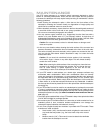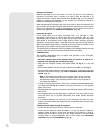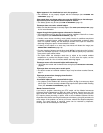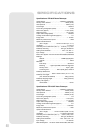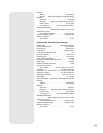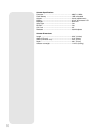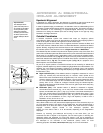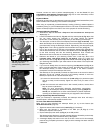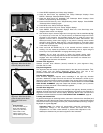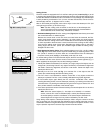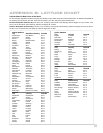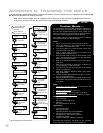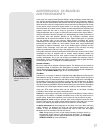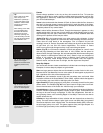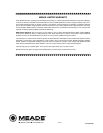
54
Setting Circles
The ETX models are equipped with R.A. and Dec. setting circles (13 and 16, Fig. 1) to aid
in locating faint celestial objects when the telescope has been polar aligned. Setting circles
emulate the celestial coordinates found on star charts or in sky catalogs. Any charted object
is easily located by coordinates in R.A. (in hours, minutes and seconds, from 0h 0m 0s to
23h 59m 59s) and Dec. (in degrees from 0° to ±90°).
With an ETX model polar aligned, use the Arrow keys to move the telescope in R.A. (left
and right keys) and Dec. (up and down keys).
Note: The Dec. setting circle is located on the left arm of the telescope fork
mount.The right arm of the mount contains a graduated circle (mounted behind
the knurled knob of the vertical lock), without Dec. numbers.
• Declination Setting Circle: The Dec. setting circle (Fig.50) has been factory set to read
the correct Declination of celestial objects.
Because the smooth knob on this fork mount arm need never be loosened, the Dec.
setting circle should always remain calibrated. If for some reason this knob becomes
loose and the Dec. setting circle must be recalibrated, level the optical tube (
5, Fig. 1)
so that it is parallel to the drive base. Loosen the smooth knob covering the Dec. setting
circle until the setting circle moves freely. Reposition the setting circle so that the 0
setting aligns with the Dec. pointer (the molded triangle beneath the setting circle).
Retighten the Dec. knob.
•
Right Ascension Setting Circle: Since celestial objects move in R.A., the R.A. setting
circle (Fig. 51) must be reset as each object is located during an observing session. The
R.A. pointer is located on the drive base 90° counterclockwise from the telescope’s
Computer Control panel (10, Fig. 1) immediately under the R.A. circle.
To use the setting circles to find astronomical objects, the ETX must first be polar aligned.
It is advisable that the motor drive be turned on and that a low-power eyepiece (
e.g., a
26mm eyepiece) be employed. Then use the following procedure:
1. Identify the celestial coordinates (R.A. and Dec.) of a bright, easy-to-find object, such as
a bright star. (Avoid using Polaris or any object near Polaris.) Coordinates of bright stars
are listed in astronomy magazines, text books or star charts. Center this object in the
telescope’s field of view.
2. Manually turn the R.A. circle (
13, Fig. 1) to read the R.A. of the object at the R.A.
pointer (the molded triangle beneath this setting circle).
3. The R.A. circle is now calibrated to read the correct R.A. of any object at which the
telescope is pointed. The Dec. circle is already calibrated through polar alignment.
4. To find another object, again identify the R.A. and Dec. coordinates. Then,
without
touching the setting circles
, move the telescope (manually, by unlocking the vertical and
horizontal locks or by slewing the telescope using the Arrow keys) so that the R.A. and
Dec. pointers read the coordinates of the second object.
5. If the above procedure has been followed carefully, the second object will now be in the
telescope’s field of view.
Note: Since the second object (i.e., the object to be located) is in constant
motion, once the R.A. circle is calibrated (step 2, above) the telescope should
be moved rapidly to read the coordinates of the second object. Otherwise the
second object will no longer be in the position indicated by the R.A. circle.
Using setting circles requires a developed technique. When using the circles for the first
time, try hopping from one bright star (the calibration star) to another bright star of known
coordinates. Practice moving the telescope from one easy-to-find object to another. In this
way the precision required for accurate object location becomes familiar.
Polaris
Little Dipper
Big Dipper
Cassiopeia
Fig. 49: Locating Polaris
141312
1112 10
Fig. 50: Section of
Declination setting circle.
0
10
20
30
40
40
30
20
10
Fig. 51: Section of Right
Ascension setting circle.



